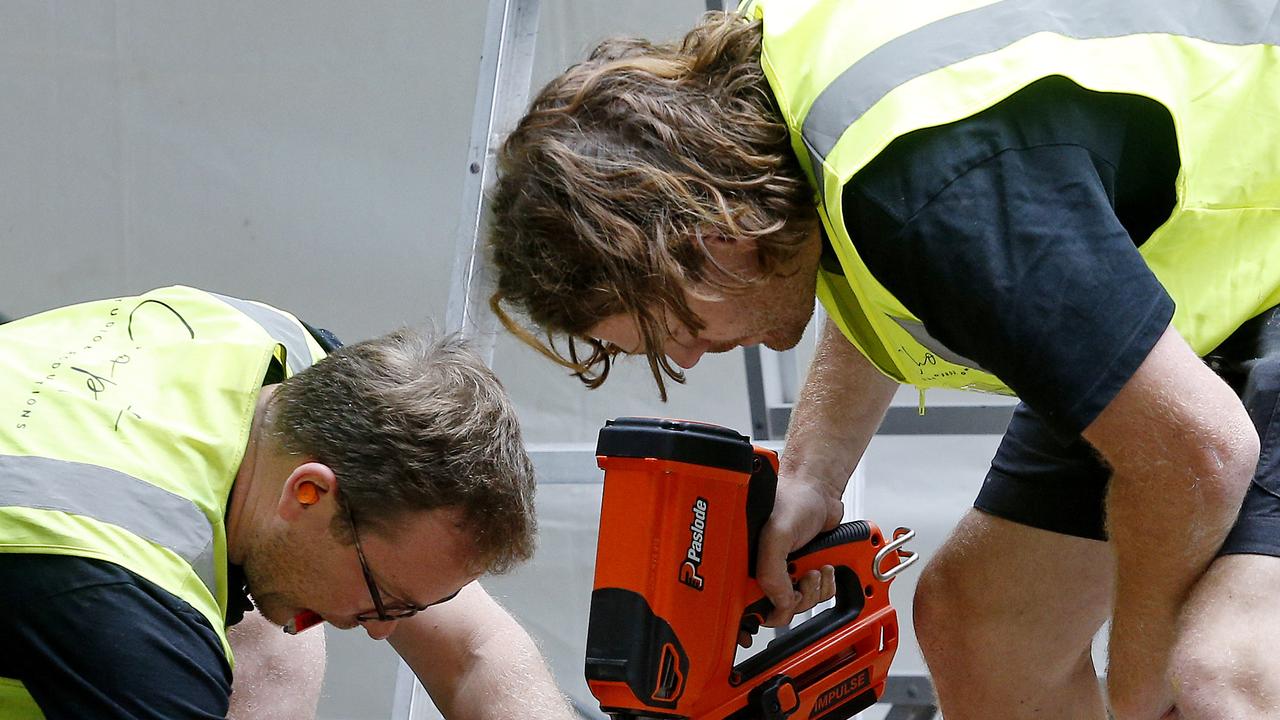Who to blame when you can’t find a job: Parents’ role in futureproofing your career revealed
UNIVERSITIES have been copping it for producing unprepared graduates but one researcher has found somewhere else to place the blame.
Careers
Don't miss out on the headlines from Careers. Followed categories will be added to My News.
THE year is 2030. Your tradie mates are being called to their next jobs via an Uber-like app while the more spiritual teach virtual yoga over Skype. Entrepreneurial types among your group are thriving and the tech-savvy are raking in cash — but you still can’t find a job.
Who do you blame?
Turns out you should blame your parents.
That’s one of the more surprising points Bernard Salt made discussing his new report on the future of Australian jobs.
Highlighting the three areas that will feel the greatest impact of technology as the Australian workforce advances in to the future, the famed demographer says attitude will become increasingly important in the eyes of employers.
He says the main takeaway for young jobseekers are the three technical skill areas that will be most demand, and the most comfortably remunerated, in the future: The “technocrat/geek jobs”, entrepreneurialism, and care work.
“The hard stuff in school will pay dividends, but the skill set young people need in addition to caring creativity and technology is the ability to be flexible,” Mr Salt tells news.com.au.
“What we know about future careers is you could be changing jobs 15 or 20 times, and that means you’re going to have to pitch your skills 15 or 20 times. You’re going to have to be flexible and confident among other qualities, and I don’t think you learn these skills at university.”
Universities have copped it recently over not preparing students for the workforce.
They’re boasting the lowest ever graduate employment rates across the country and are being blasted by fed-up employers for spitting out unprepared workers.
But Mr Salt says when it comes to qualities like being easygoing, friendly and agreeable — qualities employers will increasingly value — you can trace the blame even further back.
“I think you learn those skills from the parental caring environment,” he says.
“A lot of parents want to know what job do I steer my kids into. It’s not just about steering them into the right course at university or at TAFE, you can do more than that, Mr and Mrs Parent. You can make sure your kids fit in. If you think your kids are special and everyone else can fit in around them then you’re setting them up for failure, that’s not how it works in the real world.”
But Mr Salt said universities weren’t totally off the hook, highlighting the need for “further calibration” with businesses and future employers in creating job-ready, future-proofed graduates.
“I don’t think we’re ever going to get it exactly right. Someone going into a course today might come out in a completely different looking industry when they graduate in four or five years time, but there needs to be more calibration with course design and numbers and what’s required in the workforce.
“Do we really need umpteen thousand lawyers? We probably need to be creating more engineers or entrepreneurs. I want to see universities produce entrepreneurship or enterprise courses going forward.”
And once kids leave the nest and (hopefully) come out ready for the future workforce, it’s going to look a whole lot different.
It is likely the Australian workforce will increase by another three-million workers in the next 15 years with growing emphasis on part-time work and later retirement, the report, commissioned by the nbn, revealed.
The job market will shed repetitive, production line jobs, while technology and “superconnectivity” will give rise to entrepreneurialism and flexible working conditions.
While attitude will be key for young people in securing those future jobs, it’s also our cultural attitude that needs a bit of a makeover, Mr Salt says.
“In terms of entrepreneurialism, the Americans are light-years ahead of us. If you look at the top 10 businesses in the US, three or four have been created in the last 20 years. If you look at our top 10 the most recent entry into the top 10 was formed in 1955,” he says.
“So we need to be more embracing of new ideas, new enterprise and entrepreneurialism. As a society we need to lost the tall poppy thing and actually admire, celebrate, hopefully encourage people who can create a business that employs people and pays tax.”
Originally published as Who to blame when you can’t find a job: Parents’ role in futureproofing your career revealed



